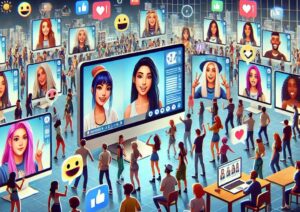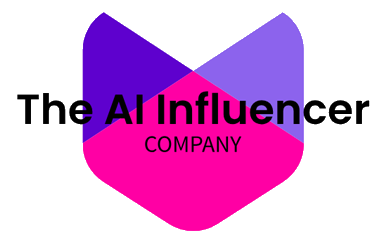Almost one billion people worldwide are struggling with mental illness so mental health advocacy and awareness are more vital now than ever before. But let’s face it, many are not aware of or have difficulty accepting this phenomenon.
This is where AI Influencers could help raise mental health advocacy. AI influencers present a unique opportunity to champion mental health in an impactful, ethical way.
This article will discuss how AI Influencers can help maintain mental health and positive living.
The Growing Need for Mental Health Advocacy
Mental illness has become a global crisis. World Health Organization reported that:
- 970 million people globally were living with a mental disorder, with anxiety and depression being the most common.
- 280 million people worldwide live with.
- Suicide is the world’s fourth biggest cause of death among those aged 15 to 29.
Despite this, stigma persists through myths that those struggling are weak or that mental illness isn’t real. This leads to isolation and treatment barriers.
Advocacy campaigns are essential to:
- Battle misconceptions
- Convey mental illness is common and treatable
- Share recovery/empowerment stories
- Increase compassion and access to resources
Raising Awareness
Raising awareness is the first step to battle mental health issues through campaigns. Some examples of successful campaigns are:
- Britain’s #HelloYellow – it encouraged wearing yellow to spark conversations about mental health.
- Bell Canada’s #BellLetsTalk campaign – donated money for every social media post with their hashtag.
These campaigns frame mental health as an important, approachable topic.
Advocates must spread messages of hope, highlight treatment options, and end stigma. Social media presents a major opportunity to shape narratives about mental health, particularly among youth and that’s where Influencers come to place.

Influencers on platforms like Instagram and TikTok can promote healthy perspectives and behaviors. Partnering with AI influencers allows campaigns to tap into existing audiences for greater impact.
The Rise of AI Influencers for Mental Health
In recent years, there has been a growing exploration around developing AI influencers specifically focused on promoting mental health and reducing stigma. AI could allow mental health advocacy messaging to be delivered in an approachable way on social media.
These AI influencers would be carefully designed with mental health in mind. Their personas and narratives can focus on sharing their journey with mental illness, coping strategies, treatment options, and messages of hope.
The AI would be optimized to connect authentically with target audiences in need of support or greater understanding. The influencers’ content and interactions could consistently align with responsible, evidence-based perspectives on mental health.
Since AI influencers are not prone to human pitfalls, they may avoid potential controversies or insensitivities that can undermine influencer mental health messaging. As they scale, mental health AI influencers could have a wide reach, especially among young demographics.
Currently, dedicated mental health advocacy AI influencers appear limited. However, explorations in this area show promise for optimizing social media’s role in mental health promotion.
With thoughtful development, AI influencers have a strong potential to ethically champion mental health in engaging, stigma-reducing ways. More initiatives to develop and test mental health AI influencers are likely to emerge.
The Power of AI Influence
While still an emerging application, AI influencers focused on mental health could provide some key benefits:
- Consistent messaging – Unlike human influencers, AI influencers never tire or waver, enabling persistent mental health advocacy.
- Controlled narration – They can carefully craft their backstories and messaging to depict mental illness and recovery.
- Scalability – Mental health AI influencers can rapidly expand their reach across platforms as audiences grow.
- Relatability – With quality AI development, their personalities and struggles can feel genuine, facilitating human connection.
- Stigma reduction – They can share their journeys and coping strategies to counter misconceptions about mental illness.
- Youth engagement – A hip, digital presence appeals to young demographics in need of support.
- Ethics – AI avoids risks like influencer scandals or selling harmful products/services.
While human influencers have advantages in authenticity, AI offers scalable control in responsibly shaping mental health narratives.
Developing AI Advocates for Mental Health
Crucial considerations:
- Genuine, empathetic personas
- Reduce stigma through storytelling
- Share hopeful messaging and treatment options
Benefits:
- Carefully controlled messaging
- Balance warmth, openness and solution-focus
- Incorporate personal stories and psychiatrist insights
Potential partners:
- Therapists for coping strategies and self-care
- Mental health nonprofits to promote resources
- Online therapy or mood-tracking services
Executing an Effective Campaign
Cross-platform, multimedia strategies should be used like Instagram, TikTok, YouTube and Facebook. Video performs well for conveying stories.
Best practices include posting regularly, testing content, analyzing data, optimizing, using relatable language/slang, targeted hashtags, seeking engagement and collaborations.
Tracking follower growth, likes, shares, comments, clicks, and partner impact allows further optimization.
Final Thoughts
The need for mental health advocacy and awareness is clear as mental illness continues to rise globally. If designed thoughtfully, AI influencers could consistently model healthy perspectives and coping skills on a relatable, mass scale.
Still, human advocates will remain invaluable. Combining AI’s strengths with human authenticity and compassion could prove powerful. We must proceed conscientiously, preserving transparency and avoiding harmful tropes.




